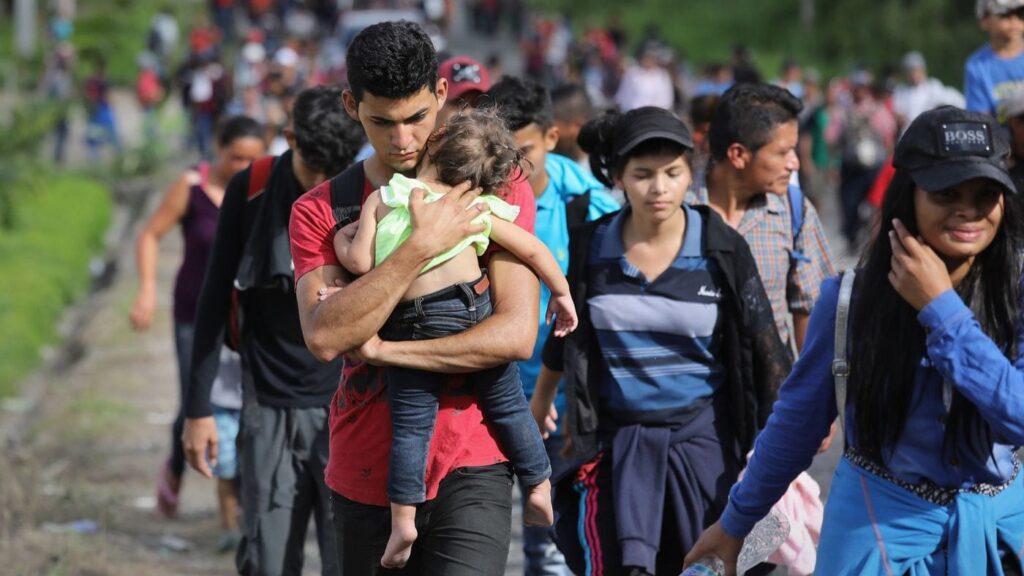by The Cowl Editor on November 8, 2018
Opinion

by Angela Bueso ’22
Opinion Staff
When I was going to the U.S. Embassy in Honduras to process my student visa, I realized how daunting the process of obtaining a visa is. From filling out an online application to paying $160 for the appointment, applying for a visa comes at a steep price.
This is a process that the Honduran population living below the poverty line cannot afford. According to the World Bank, one out of five Hondurans survive on less than $1.90 a day. Moreover, they will not compromise their basic needs to try to cover the expenses of applying for citizenship in the U.S.
With a valid tourist visa, bank statements, and letters from Providence College’s Office of International Students, I was in a very different position than the gentleman in front of me. By the looks of it, he belonged to the vast majority of the population who live in extreme poverty.
I was prepared for what the officer might ask; however, I was not mentally prepared to see how the same immigration officer that awarded me the student visa in less than two minutes, could deny the man in front of me his visa—all in less than 40 seconds. That was all that it took for the embassy official to deny this man an opportunity for a better life. While I obviously do not know the details of this man’s visa application, and thus do not know exactly why he was denied, it was shocking to see that 40 seconds was all the consideration he would get.
It was this moment that made it clear to me why many people risk their lives to come to America. For migrants, the hope of a better life in their home country is nonexistent. They see America as the land of opportunity, and they are willing to risk everything to get here.
This idea of opportunity was what fueled the migrant caravan, a group of people who fled gang violence in Central America, in hopes of being granted asylum in the U.S.
The United States government is shutting its doors to people who strive for better lives. The Honduran government and its citizens did not shut its doors to Americans back in the early 1900s when the U.S. government went to Honduras, cut a deal with the government, and installed the United Fruit Company in the land.
With Trump’s anti-immigration policy, the U.S. is unwilling to help those from Honduras who suffer the most. One would never go into someone else’s house, take what he or she needs, leave them with nothing, and later close the door on them when they come asking for help. So why is the U.S. doing this to immigrants from Honduras?
It would be understandable if the U.S. denied asylum to people who are dangerous, but immigrants do not want to cause any harm, nor do they act with any malicious intent. They do not want to stir up trouble; they see enough violence back home. Instead, immigrants come here in hopes of a peaceful life, one where they can live safely and work.
One ideology that many Americans have embraced in order to justify the unjust treatment of migrants is that these immigrants are taking American jobs. The idea that immigrants are stealing American jobs is nonsensical. They are willing to walk miles of desert, have their legs cut off by “the death train,” a freight train immigrants take, and leave their families behind just to work for wages that the majority of Americans would never settle for.
Overall, as much as the media or the U.S. government portrays the immigrants in the caravan as villains and criminals, they are not. Immigrants are not enemies of the United States. They are parents, sons, daughters, families—just like ordinary Americans, just like PC students, just like me—looking for a better life.
This issue can seem distant from us at PC—something that does not concern us and that the government should deal with on its own. This self-centered way of thinking does not represent the catholic ideals that our Dominican college promotes.
Being a selfless, charitable, and honorable Catholic means helping those who are in need, those who are looking for safety. The College needs to actively work to inform our faculty and students about the struggles immigrants go through when crossing borders, and the different socio-economic factors that force them to abandon their countries. From hosting immigrant speakers, to fostering discussions about immigration in classes, we would all benefit from talking about this paramount topic.
As a fellow Honduran, one who knows what my people are going through, I ask, please: help us. It is up to our generation to change this, to be more human, and to help each other.